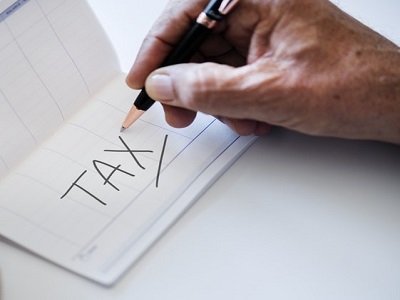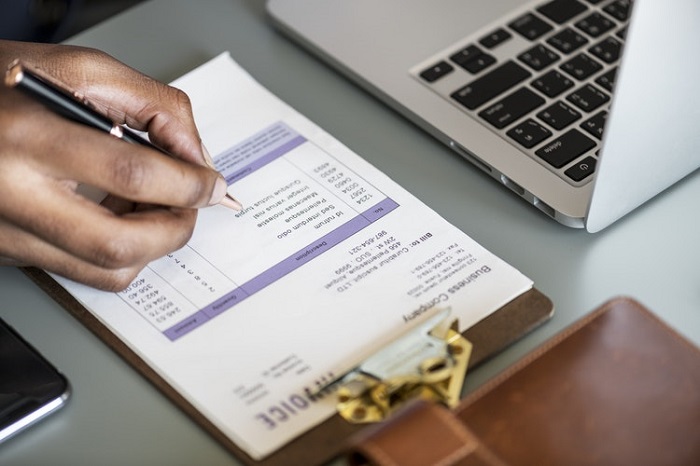A Brief Overview of The Types of Taxes in Singapore, and the Singapore Tax Rate
 The tax assessment in Singapore is one of the main reasons investors have been attracted to start a business in the city-state. The Singaporean government has brought in an attractive tax system as a part of its long-term goal of making Singapore a major financial hub in the world, which might seem almost unbelievable for people elsewhere. No overseas income tax, forget about capital gains tax and dividend income tax and no tax on gifts or inheritance, all of them speak for themselves. The Singapore tax rate is not at all demanding, with rates being some of the lowest in the world, and on top of that, there are many incentives which cut the already flat tax. Here are the different types of taxes in Singapore.
The tax assessment in Singapore is one of the main reasons investors have been attracted to start a business in the city-state. The Singaporean government has brought in an attractive tax system as a part of its long-term goal of making Singapore a major financial hub in the world, which might seem almost unbelievable for people elsewhere. No overseas income tax, forget about capital gains tax and dividend income tax and no tax on gifts or inheritance, all of them speak for themselves. The Singapore tax rate is not at all demanding, with rates being some of the lowest in the world, and on top of that, there are many incentives which cut the already flat tax. Here are the different types of taxes in Singapore.
Personal Income Tax
The personal income tax depends on how much an individual makes in Singapore. Also, different tax rates are charged for residents and non-residents. To be a resident taxpayer in Singapore, anyone among the following conditions is to be fulfiled.
- Should be a Singapore Citizen (SC) or Singapore Permanent Resident (SPR) residing in the city-state, except for temporary absence
- A foreigner who has stayed or worked in Singapore for 183 days or more in the year before YA. (Excludes director of a company).
Tax Rates For Singapore Residents
The following table gives an overview of the personal income Singapore tax rates 2018 for different income thresholds from the Year of Assessment 2017 (YA 2017).
| Chargeable Income | Tax Rates |
| First $20,000 | 0.0% |
| Next $10,000 (Total $30,000) | 2.0% |
| Next $10,000 (Total $40,000) | 3.5% |
| Next $40,000 (Total $80,000) | 7.0% |
| Next $40,000 (Total $120,000) | 11.5% |
| 0Next $40,000 (Total $160,000) | 15.0% |
| Next $40,000 (Total $200,000) | 18.0% |
| Next $40,000 (Total $240,000) | 19.0% |
| Next $40,000 (Total $280,000) | 19.5% |
| Next $40,000 (Total $320,000) | 20.0% |
| Above $320,0000 | 22.0% |
As said earlier, you don’t have to pay Capital gains tax, overseas tax or tax rates on dividends in Singapore.
Singapore tax rates for expats, in case they apply for non-resident taxes, have to pay taxes according to the following table.
| Type of Income | Tax Rate |
| Company Director’s Enumeration | 22% |
| Income as a non-resident professional working in Singapore | 15% of the gross income, or 22% of the net income |
| Income generated as a non- resident entertainer working in Singapore (artist, sportsman, e.t.c) | 10% concessionary rate |
| Other Income | 22% |
| SRS withdrawal | 22% |
| Interest, Royalty or similar | Reduced Final Withdrawing as follows:
Interest: 15% Royalty: 10% Or 22%, if reduced final withdrawing tax is not applicable |
Notes:
The income tax is exempt if the person is in Singapore for a short-term- employment. Anyway, this doesn’t apply to a director, a non-resident entertainer and someone having a profession in Singapore.
After 61 days, the individual is charged in full according to the table.
Non- Ordinarily Resident Scheme

There is a special tax scheme known as the Non- Ordinarily Resident Scheme. This gives a tax cut to qualified individuals for five years.
Eligibility of Non- Ordinarily Resident Scheme
Here are the conditions for the individuals who qualify for the non-ordinarily resident scheme.
- Should be a non- Singaporean tax resident for the past 3 Years of Assessment.
- In the year where the individual is applying for the exempt, he/she should have been a Singapore tax resident.
Individuals only need to pay tax on that part of their income that corresponds to the number of days they spend in Singapore.
The individual gets tax exemption made by the employer on the overseas pension fund.
Anyway, to enjoy these benefits, the annual salary can be no less than S $160,000, and the individual should spend at least 90 days outside Singapore in a year.
Singapore Corporate Tax
The corporate tax is another among the types of taxes in Singapore. For the companies operating in Singapore, they only pay taxes for income derived in the city-state. Singapore corporate tax rate Is fixed on a flat rate of 17% of the chargeable income, this, however, is only for the revenue that crosses S $3,00,000. Various incentives bring down the corporate tax rate in Singapore. For startups, they pay taxes as per to they qualify for the Start-up Tax Exemption (SUTE) scheme for Singapore Companies or not.
Eligibility For SUTE
- The company doesn’t have more than 20 shareholders.
- In the case of the company having corporate shareholders, at least one individual should hold 10% of the shares.
- Property or investment holding companies are not eligible for the SUTE.
This table gives the Singapore corporate tax rate for the companies under SUTE Singapore.
| Chargeable Income | Rate |
| $100,000 | 0% |
| $200,000 | 2.55% |
| $300,000 | 3.40% |
| $400,000 | 5.10% |
| $500,000 | 7.20% |
| $1,000,000 | 12.10% |
| $2,000,000 | 14.55% |
| $3,000,000 | 15.37% |
| $5,000,000 | 16.02% |
| $10,000,000 | 16.51% |
On the other hand, Singapore corporate tax rates without the SUTE is given in the table:
| Chargeable Income | Rate |
| $100,000 | 4.85% |
| $200,000 | 4.97% |
| $300,000 | 5.02% |
| $400,000 | 6.77% |
| $500,000 | 8.82% |
| $1,000,000 | 12.91% |
| $2,000,000 | 14.95% |
| $3,000,000 | 15.64% |
| $5,000,000 | 16.18% |
| $10,000,000 | 16.59% |
As you can see, the Singapore Corporate tax rates are low. Still, you can make it smaller by using various other incentives. For this, we recommend you to take help from a tax service, such as us, who will be filing your taxes and help you apply for the various schemes available.
Other Taxes
Some other types of taxes in Singapore are as follows:
Goods And Services Tax (GST)
This is the tax that consumers need to pay for the products that apply. The GST or the value-added tax in Singapore is 7%. Any company whose annual turnover is more than 7% need to apply for GST in Singapore.
Property Tax
The Singapore property tax needs to be paid by real estate owners. The rate is dependent on the value of the real estate. It is applicable for houses, land, buildings or other tenements.
Stamp Duty
Stamp duty is another among the types of taxes in Singapore which needs to be paid by everyone while applying documents related to shares or real estate.
There are three types of stamp duties for buying or selling real estate in Singapore.
- Buyer’s Stamp Duty
- Additional Buyer’s Stamp Duty, and
- Seller’s Stamp Duty
Customs And Excise Duties
Import duty is levied while importing stuff such as petroleum product, vehicles, tobacco or alcohol products. The rate is dependent on the product that is being imported.
More taxes
The other types of taxes in Singapore include Motor vehicle taxes, betting taxes, casino taxes, trust income tax, foreign worker’s levy, e.t.c.
Well, as you can see, there are various types of taxes in Singapore, and, there are a lot of incentives for you take to maximise tax savings. You will need a taxation service to take care of it in the most efficient way. So, let us take care of your taxation as you focus on the business. Here is more about our services.





